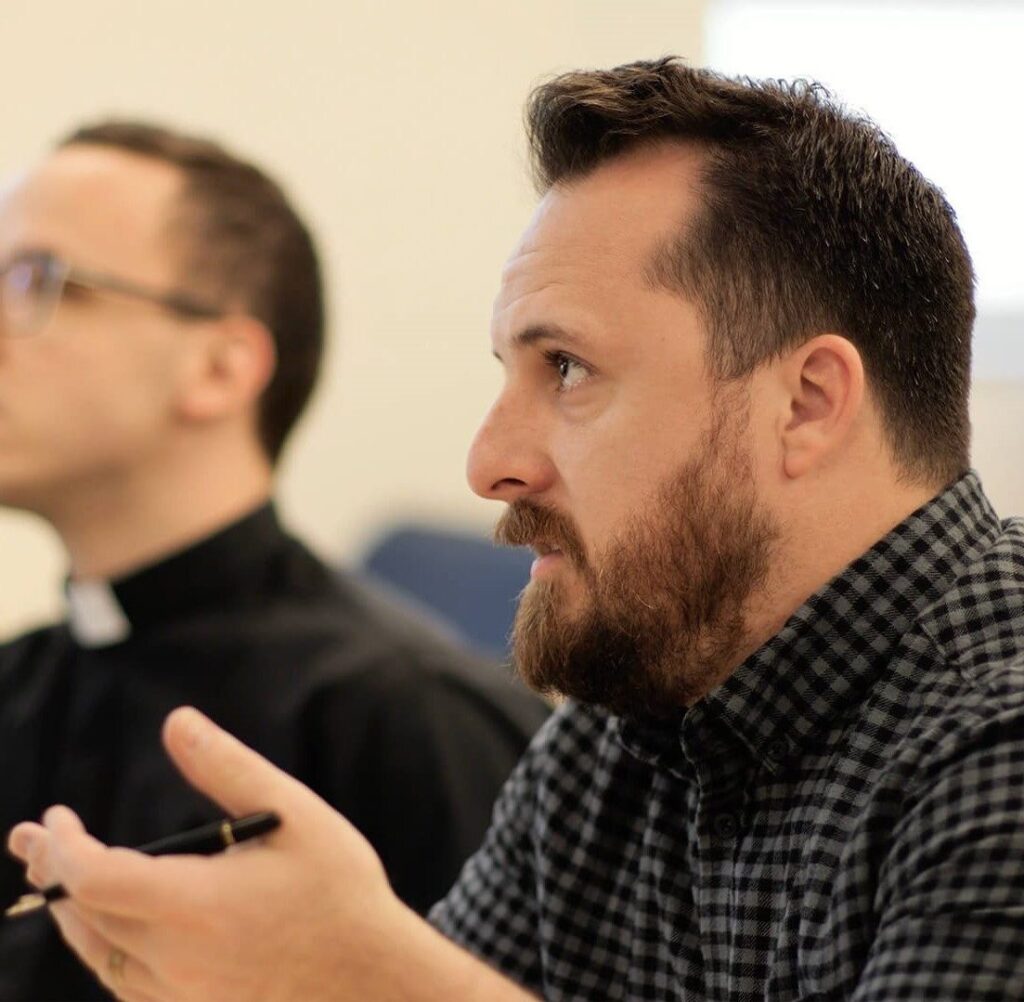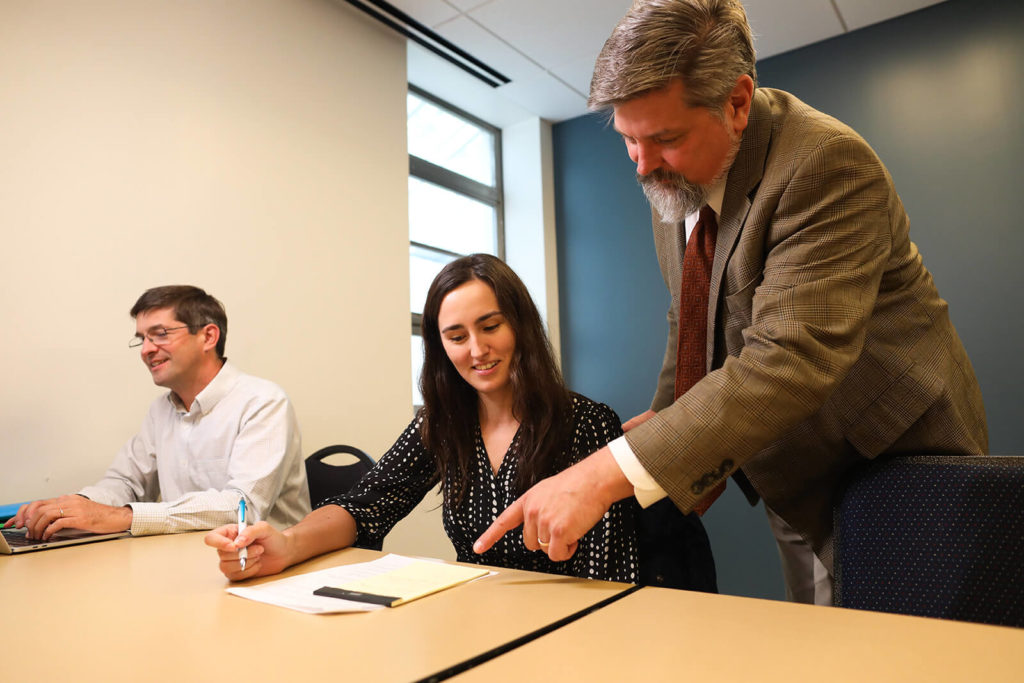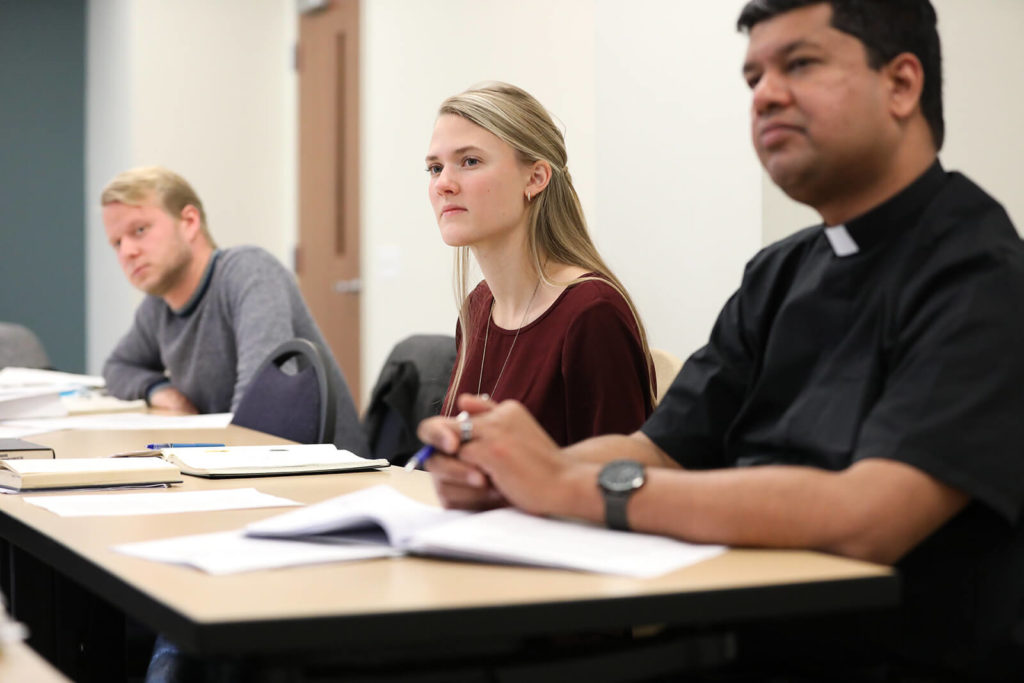Academic Formation at the John Paul II Institute
“Education is first of all a thing worth pursuing for its own sake. For the ancient Greeks, in fact, education was not only an intrinsic good, it was one of the very highest, a good to which society itself is subordinate. The Fathers of the Church took over this Greek ideal and uncovered its theological roots. For Christians, who believe that ‘the glory of God is the living man,’ the task of cultivating humanity is inseparable from the call to love God and love our neighbor as ourselves. Education, properly understood, lies right at the center of the Christian mission.
God ‘formed’ man from the clay and charged him to ’till and keep’ the garden in which God placed him, or in other words to give form in turn to the world and the things in it. The task of education may be interpreted in the light of this commandment. On the one hand, if we are to tend to the world in a genuinely fruitful way, we must learn what it is and what it means. The health of our culture depends on a proper understanding of the meaning of nature and the world around us. On the other hand, even more fundamentally, our task of giving form has an internal end: man first gives form to himself, which is to say, he learns to cultivate and grow in the human ideal that he has received. We best till the world and keep it by learning about the whole and, in doing so, becoming whole ourselves.” (Continue reading about the Institute’s educational philosophy.)
For the John Paul II Institute, this mission to know the world truly and to cultivate the truly human in ourselves and in the culture takes shape through our academic offerings and the work of our faculty.
Learn more about our programs and faculty:


